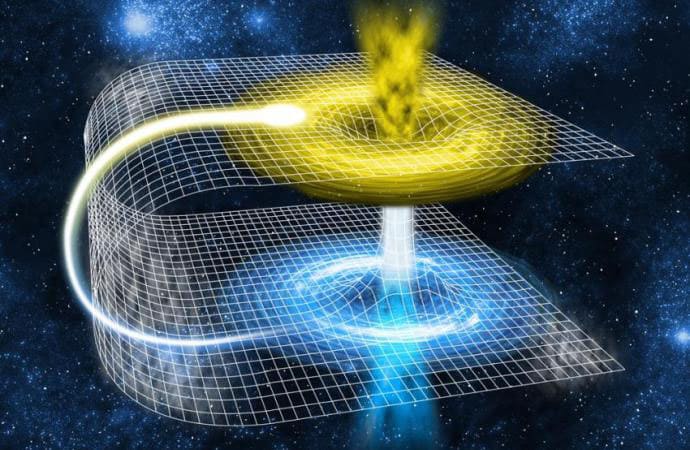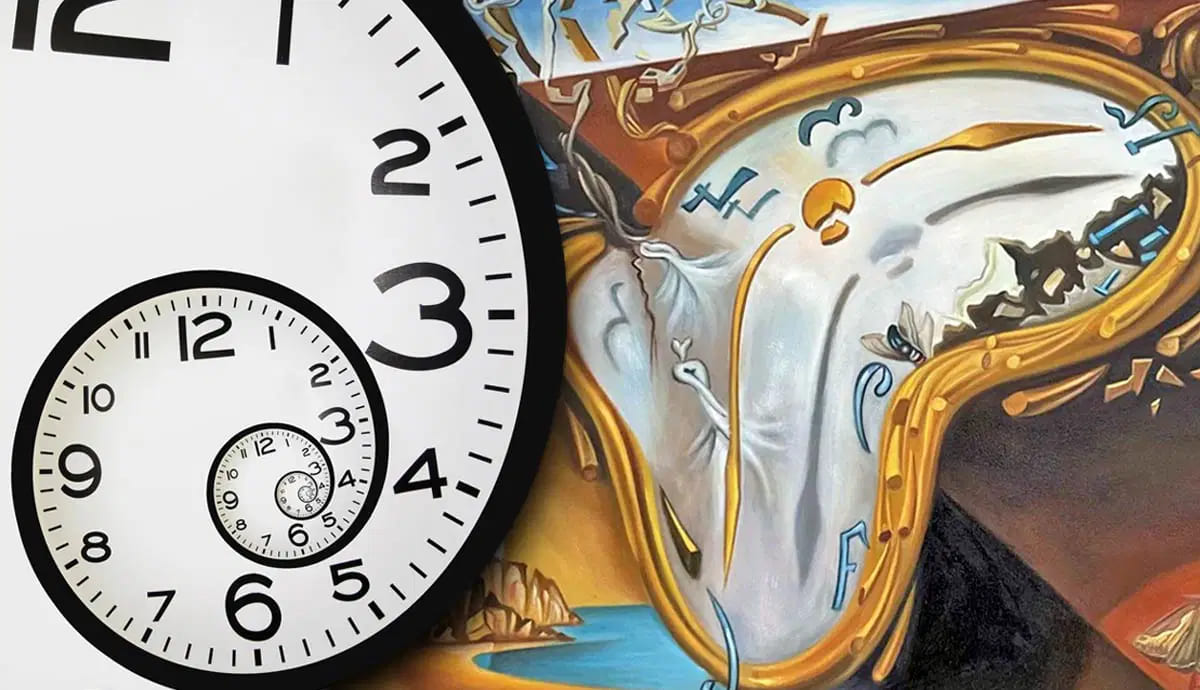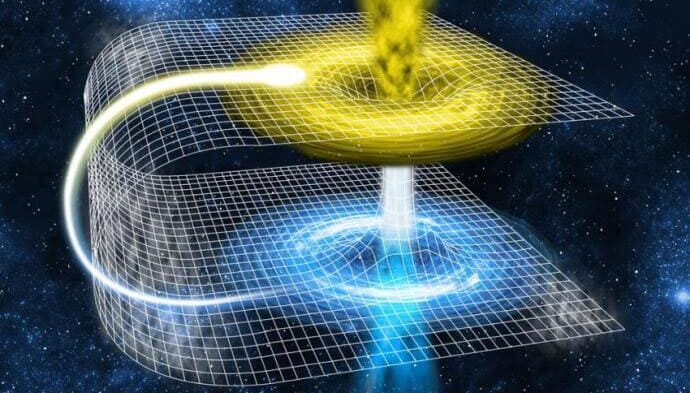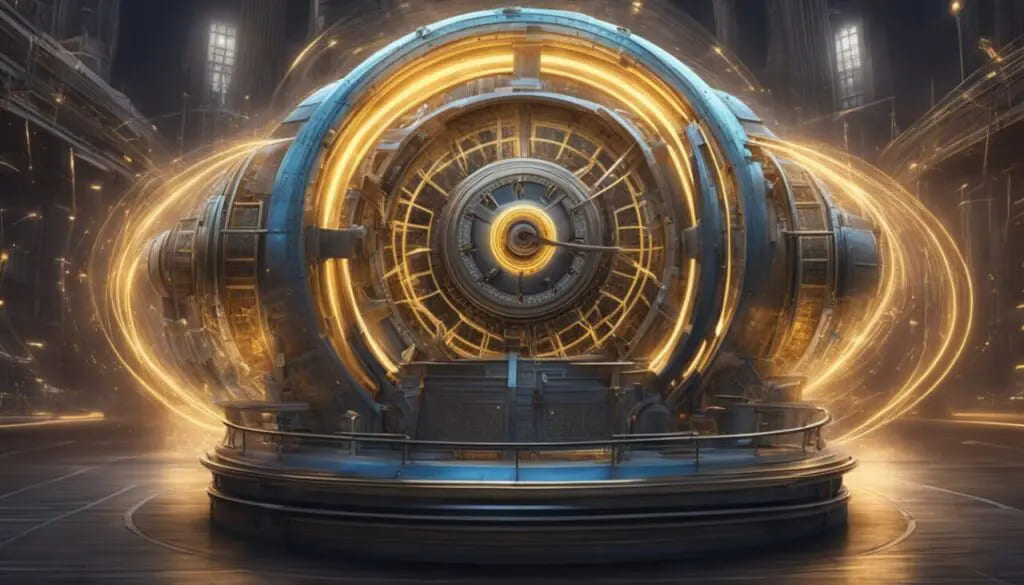Your cart is currently empty!
Written by Riyan Sharma {08|08|2025}
Time Travel in Theory
Time Travel in Theory
From ancient myths to blockbuster movies, humans have always dreamed of bending time. The idea of stepping into the past to witness history—or leaping into the future to see what’s next—has fascinated philosophers, scientists, and storytellers for centuries. While time travel has long been a staple of science fiction, modern physics has revealed that it might not be pure fantasy after all. The laws of nature, strange as they are, don’t completely forbid certain forms of time manipulation. And that’s where imagination meets science.
The Science Behind the Idea
At the core of time travel theory lies Einstein’s theory of relativity. According to it, time isn’t fixed—it can stretch, bend, and slow down depending on speed and gravity. Travel close to the speed of light and time for you passes more slowly compared to someone on Earth. This is called time dilation and is already proven with precise atomic clock experiments.
Another theoretical route involves wormholes, hypothetical tunnels in space-time that could act as shortcuts between two distant points, possibly even two different moments in time. While wormholes exist only in equations so far, scientists haven’t completely ruled them out.

Famous Theories & Proposals
Physicists have imagined bold mechanisms for time travel:
1. Tipler Cylinder – A massive, infinitely long rotating cylinder that could twist space-time.
2. Cosmic Strings – Thin, dense tubes of energy stretching across the universe, capable of warping time.
3. Quantum Theories – Some interpretations of quantum mechanics allow for timelines to split, avoiding paradoxes entirely.
These ideas, while mathematically interesting, remain far beyond our current technology—if they are possible at all.

Paradoxes & Problems
Time travel isn’t just a technical challenge—it’s a logical minefield. The most famous issue is the Grandfather Paradox: if you travel back in time and prevent your grandparents from meeting, how could you exist to make that trip?
Other headaches include causal loops, where events create themselves, and timeline instability, where small changes ripple forward unpredictably. These paradoxes push scientists toward the idea of multiple universes as a solution: travel to the past, but to a different branch of reality.

Time Travel in Pop Culture
From Back to the Future to Avengers: Endgame, popular media has shaped our vision of time travel. Sometimes it’s portrayed as a fun adventure, other times as a dangerous gamble. Books like The Time Machine by H.G. Wells started the conversation, while modern games and series like Doctor Who and Dark keep the concept alive. Pop culture doesn’t worry about strict physics—it thrives on the “what if?” factor.

Current Research & Experiments
While no one is building a functioning time machine in a lab (yet), scientists are studying elements of time manipulation. Time dilation has been confirmed on satellites and the International Space Station, where astronauts age slightly slower than people on Earth.
Research in quantum entanglement and closed timeline curves offers hints—however small—that time travel might be possible under extreme conditions.

The Big Question
Could time travel ever be real? The truth is, we already “travel” into the future at a steady pace—one second at a time. Physics suggests faster jumps forward might be possible, but going back remains deeply uncertain. Even if technology allowed it, the ethical, legal, and safety challenges would be immense.
Time travel sits at the crossroads of imagination and science, reminding us how much we still don’t understand about the universe. Whether it remains fiction or someday becomes fact, it challenges us to think bigger about reality, causality, and our place in the cosmic timeline. For now, the journey through time is a mental one—but the theories we explore today could be the blueprints for tomorrow’s impossible machines.
Written by Riyan Sharma {08|08|2025}
Time Travel in Theory
Time Travel in Theory
From ancient myths to blockbuster movies, humans have always dreamed of bending time. The idea of stepping into the past to witness history—or leaping into the future to see what’s next—has fascinated philosophers, scientists, and storytellers for centuries. While time travel has long been a staple of science fiction, modern physics has revealed that it might not be pure fantasy after all. The laws of nature, strange as they are, don’t completely forbid certain forms of time manipulation. And that’s where imagination meets science.
The Science Behind the Idea
At the core of time travel theory lies Einstein’s theory of relativity. According to it, time isn’t fixed—it can stretch, bend, and slow down depending on speed and gravity. Travel close to the speed of light and time for you passes more slowly compared to someone on Earth. This is called time dilation and is already proven with precise atomic clock experiments.
Another theoretical route involves wormholes, hypothetical tunnels in space-time that could act as shortcuts between two distant points, possibly even two different moments in time. While wormholes exist only in equations so far, scientists haven’t completely ruled them out.

Famous Theories & Proposals
Physicists have imagined bold mechanisms for time travel:
1. Tipler Cylinder – A massive, infinitely long rotating cylinder that could twist space-time.
2. Cosmic Strings – Thin, dense tubes of energy stretching across the universe, capable of warping time.
3. Quantum Theories – Some interpretations of quantum mechanics allow for timelines to split, avoiding paradoxes entirely.
These ideas, while mathematically interesting, remain far beyond our current technology—if they are possible at all.

Paradoxes & Problems
Time travel isn’t just a technical challenge—it’s a logical minefield. The most famous issue is the Grandfather Paradox: if you travel back in time and prevent your grandparents from meeting, how could you exist to make that trip?
Other headaches include causal loops, where events create themselves, and timeline instability, where small changes ripple forward unpredictably. These paradoxes push scientists toward the idea of multiple universes as a solution: travel to the past, but to a different branch of reality.

Time Travel in Pop Culture
From Back to the Future to Avengers: Endgame, popular media has shaped our vision of time travel. Sometimes it’s portrayed as a fun adventure, other times as a dangerous gamble. Books like The Time Machine by H.G. Wells started the conversation, while modern games and series like Doctor Who and Dark keep the concept alive. Pop culture doesn’t worry about strict physics—it thrives on the “what if?” factor.

Current Research & Experiments
While no one is building a functioning time machine in a lab (yet), scientists are studying elements of time manipulation. Time dilation has been confirmed on satellites and the International Space Station, where astronauts age slightly slower than people on Earth.
Research in quantum entanglement and closed timeline curves offers hints—however small—that time travel might be possible under extreme conditions.

The Big Question
Could time travel ever be real? The truth is, we already “travel” into the future at a steady pace—one second at a time. Physics suggests faster jumps forward might be possible, but going back remains deeply uncertain. Even if technology allowed it, the ethical, legal, and safety challenges would be immense.
Time travel sits at the crossroads of imagination and science, reminding us how much we still don’t understand about the universe. Whether it remains fiction or someday becomes fact, it challenges us to think bigger about reality, causality, and our place in the cosmic timeline. For now, the journey through time is a mental one—but the theories we explore today could be the blueprints for tomorrow’s impossible machines.


Leave a Reply